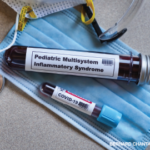The impetus for the first phase was a now-retracted article in The Lancet from 1998 that purportedly demonstrated a correlation between the measles, mumps and rubella (MMR) vaccine and the development of autism.1 Despite its ultimate retraction 12 years after publication, this article did irreparable damage to trust in vaccination among many Americans and spurred the rapid growth of a sizable anti-vaccine community.
The second phase of this process was the politicization of vaccine policy and explicit links drawn between personal autonomy and civil liberties, as well as the rights of individuals to choose whether they and their children should be vaccinated. Even before the COVID-19 pandemic, spikes in deaths due to measles in the U.S. and abroad were noted by the World Health Organization and others. The current pandemic has only compounded this problem.2
The third and current phase of anti-vaccine sentiment has been the globalization of misinformation about vaccines, with dissemination made possible by widespread internet access and the proliferation of misinformation on social networking sites, such as Facebook.3
Dr. Hotez urged the audience to be vigilant in recognizing misinformation about vaccination against COVID-19 and—in a respectful and compassionate manner—to provide patients with accurate information that will help protect their health.
Rheumatology Patients
Next, Jinoos Yazdany, MD, MPH, Alice Betts Endowed Professor and chief of rheumatology, Zuckerberg San Francisco General Hospital, University of California, San Francisco, discussed COVID-19’s effects on patients with rheumatic conditions. Overall, Dr. Yazdany explained, people with autoimmune diseases have had a similar or slightly increased incidence of initial infection with SARS-CoV-2 compared with the general population. A commonality between patients with autoimmune disease and the general population is that the risk of severe COVID-19 disease grows with increased age and the presence of significant medical co-morbidities, such as diabetes.
Dr. Yazdany described in detail the creation and work of the COVID-19 Global Rheumatology Alliance, a section of the ACR formed in the early days of the pandemic in an international effort to collect data from around the world to statistically evaluate outcomes for patients with rheumatic disease who have developed COVID-19.
In September 2021, Dr. Yazdany and colleagues published a study evaluating associations between the baseline use of biologic or targeted-synthetic disease-modifying anti-rheumatic drugs (DMARDs) and the severity of COVID-19 in more than 2,800 patients with rheumatoid arthritis (RA). The authors found patients treated with rituximab or Janus kinase (JAK) inhibitors had more severe COVID-19 than those on tumor necrosis factor inhibitors (TNFi’s) at baseline.4



